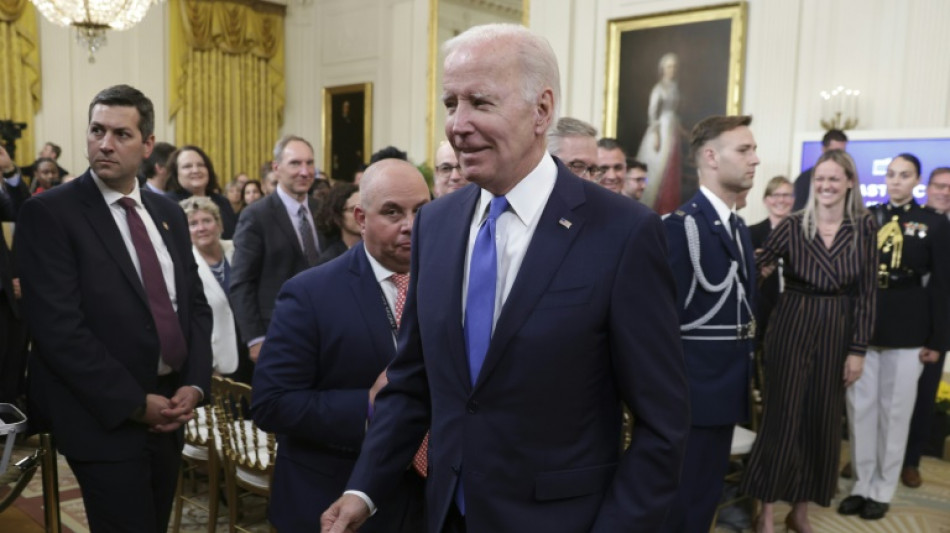
-
 Bangladesh spinner Taijul's 5 wickets trigger Zimbabwe collapse in 2nd Test
Bangladesh spinner Taijul's 5 wickets trigger Zimbabwe collapse in 2nd Test
-
French mosque murder suspect, 21, surrenders in Italy

-
 Mayor Khan keen for London to make Olympics history
Mayor Khan keen for London to make Olympics history
-
Iranian president visits Azerbaijan as ties warm
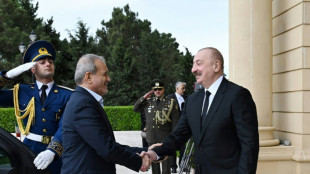
-
 What we know ahead of the conclave
What we know ahead of the conclave
-
Jannik Sinner launches foundation supporting children

-
 Villagers on India's border with Pakistan fear war
Villagers on India's border with Pakistan fear war
-
Putin announces surprise Ukraine truce for May 8-10

-
 Conclave to elect new pope starts May 7
Conclave to elect new pope starts May 7
-
Stock markets mostly rise amid trade talk hopes

-
 India says signs deal with France for 26 Rafale fighter jets
India says signs deal with France for 26 Rafale fighter jets
-
Trump's deep-sea mining order violates global norms: France
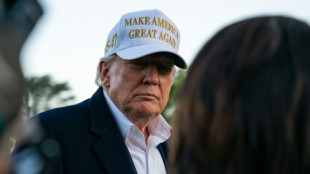
-
 India Kashmir crackdown sparks anger as Pakistan tensions escalate
India Kashmir crackdown sparks anger as Pakistan tensions escalate
-
Russia says claims over annexed Ukraine regions key to peace

-
 Austrian climber dies on Nepal mountain
Austrian climber dies on Nepal mountain
-
Fires rage 2 days after Iran port blast killed 46

-
 Palestinian official tells ICJ Israel using aid blockage as 'weapon of war'
Palestinian official tells ICJ Israel using aid blockage as 'weapon of war'
-
France arrests 25 in police raids after prison attacks

-
 Kim Kardashian's next star turn is in a Paris courtroom
Kim Kardashian's next star turn is in a Paris courtroom
-
Syria group says military chief arrested in UAE

-
 Anger in Indian Kashmir at demolitions and detentions
Anger in Indian Kashmir at demolitions and detentions
-
Italy bank merger wave heats up as Mediobanca eyes Banca Generali

-
 Putin critic Johann Wadephul, Germany's incoming foreign minister
Putin critic Johann Wadephul, Germany's incoming foreign minister
-
Cardinals expected to pick conclave date to elect new pope

-
 French mosque murder suspect arrested in Italy
French mosque murder suspect arrested in Italy
-
China says on 'right side of history' in trade standoff with US

-
 Stock markets mostly rise as investors eye trade talks
Stock markets mostly rise as investors eye trade talks
-
Fires rage 2 days after Iran port blast killed 40

-
 Yemen's Huthi rebel media says 68 killed in US strikes on migrant centre
Yemen's Huthi rebel media says 68 killed in US strikes on migrant centre
-
Man rescued from Mount Fuji twice in one week: reports

-
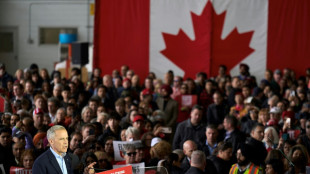 Canada votes for new government to take on Trump
Canada votes for new government to take on Trump
-
Top UN court to open hearings on Israel's aid obligation to Palestinians

-
 Philippines denies 'irresponsible' Chinese report on disputed reef
Philippines denies 'irresponsible' Chinese report on disputed reef
-
T'Wolves win to push Lakers to brink, Celtics, Knicks and Pacers win

-
 Myanmar marks month of misery since historic quake
Myanmar marks month of misery since historic quake
-
South Korea's SK Telecom begins SIM card replacement after data breach

-
 Women's flag football explodes in US as 2028 Olympics beckon
Women's flag football explodes in US as 2028 Olympics beckon
-
'Hunger breaks everything': desperate Gazans scramble for food

-
 Suspect charged with murder in Canada car attack that killed 11
Suspect charged with murder in Canada car attack that killed 11
-
Lost to history: Myanmar heritage falls victim to quake

-
 Romania far-right rides TikTok wave in election re-run
Romania far-right rides TikTok wave in election re-run
-
Trial begins in Paris over 2016 gunpoint robbery of Kim Kardashian

-
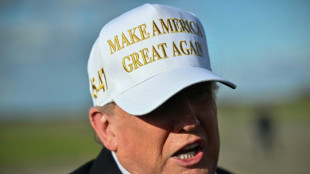 Trump thinks Zelensky ready to give up Crimea to Russia
Trump thinks Zelensky ready to give up Crimea to Russia
-
North Korea confirms troop deployment to Russia's Kursk

-
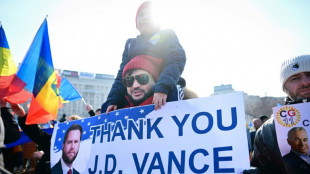 Romania presidential election re-run under Trump shadow
Romania presidential election re-run under Trump shadow
-
Asian markets mixed as investors eye trade talks

-
 T'Wolves push Lakers to brink of elimination, Celtics and Knicks win
T'Wolves push Lakers to brink of elimination, Celtics and Knicks win
-
Suspect charged with murder in Canada car attack that left 11 dead

-
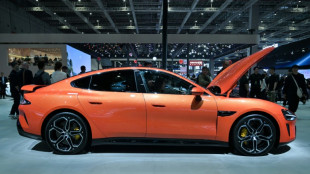 Smart driving new front in China car wars despite fatal crash
Smart driving new front in China car wars despite fatal crash
-
Cardinals set to pick conclave date to elect new pope


Biden's climate plan strains ties with European allies
US President Joe Biden's landmark climate action plan has become a subject of tension between the United States and European Union, which fears it could hurt European industry.
With French Finance Minister Bruno Le Maire and his German counterpart Robert Habeck headed to Washington in the coming week to discuss the consequences of the Inflation Reduction Act (IRA), here is what you need to know:
- What is the IRA? -
The IRA, a massive piece of legislation that largely focuses on climate and social spending, provides more than $430 billion in US investments.
Of that sum, $370 billion will go toward cutting greenhouse gas emissions 40 percent by 2030, making it the largest ever American program to combat climate change.
Some investments are in the form of tax cuts for companies that invest in clean energy, but there are also significant subsidies for electric vehicles, batteries and renewable energy projects -- if they are manufactured in the United States.
One is a $7,500 subsidy for households buying US-made electric vehicles, while another gives benefits to manufacturers of wind turbines and solar panels who use US steel.
The measures have sparked concern in Europe as they impact key industries on the continent.
- How are both sides reacting? -
The IRA has caused a stir at EU headquarters in Brussels and in other European capitals, which see the various subsidies as discriminatory, in particular against the bloc's auto manufacturers.
At the start of the month, the EU unveiled proposals including a controversial expansion of state aid rules partly to counter the threat from US green subsidies.
The new measures give flexibility on providing aid to companies in the green and renewable energy sector, as well as those involved in the decarbonization of industry.
There will also be tax breaks for companies in strategic net-zero sectors.
But US and EU officials struck a conciliatory tone after recent talks, underlining a commitment to address EU concerns "constructively."
US Secretary of State Antony Blinken said in December after meeting with European officials: "We are committed to moving forward together not at the expense of each other, but to the benefit of each other."
Le Maire and US Trade Representative Katherine Tai agreed in November that both sides "should work together to deepen the bilateral understanding of the legislation," according to a statement.
Meanwhile US Senator Joe Manchin, who was key in passing the IRA, has expressed surprise at European reactions at a time when the US works to tackle climate change.
- Is there room for maneuver? -
Even if Biden wanted to walk back certain measures or broaden the number of beneficiaries, his legislative options are quite limited.
Biden's Democratic Party has lost its House of Representatives majority in January.
The new Republican majority is keen on slashing federal government spending, threatening to block the usual rubber-stamp approval for raising the nation's debt limit if Democrats do not agree to steep budget cuts.
It is also unclear that Biden is considering touching a key plank of his presidential legacy, which he salvaged only after protracted negotiations in the Senate.
The subsidies in question are very popular, especially in states such as Ohio and Michigan, where the automotive industry remains powerful. Their "swing state" status gives them considerable political clout.
- What does the EU want? -
Before the EU, Canada and Mexico expressed concerns about the IRA, which they saw as incompatible with the free trade agreement between the three North American countries.
They obtained an extension of subsidies for electric vehicles made in North America, a key issue for Mexico in particular where many global manufacturers have factories.
This is the type of treatment the EU wants to obtain -- with the bloc previously urging the US to grant it the same exemptions.
In December, the EU said it seeks "non-discriminatory treatment" of the bloc's clean vehicle producers under the IRA's clean vehicle credits, although the specifics could prove complicated to iron out.
S.F.Warren--AMWN